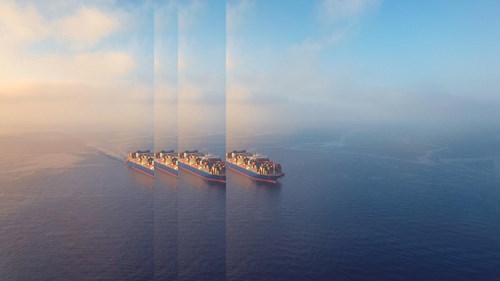14th sanctions package against Russia: renewed need for action by companies
On 24 June 2024, the EU adopted its 14th sanctions package against Russia, amending Regulations (EU) 2024/1739 and 2024/1745 and implementing Regulations (EU) 2024/1746 and 2024/1776. The two central EU sanctions regulations, Regulation (EU) No. 269/2014 and No. 833/2014, have been changed and expanded once again. The changes entered on 24 and 25 June 2024 into force and were more far-reaching than initially expected.
A. 116 new listings of persons and extended list of sanctioned goods
The sanctions list in Annex I of Regulation (EU) No 269/2014 (“Regulation 269/2014”) now covers additional 116 entries, including 69 individuals and 47 entities. Listed individuals and entities are inter alia subject to asset freezes and prohibitions on the provision of funds or economic resources.
The lists of import and export restrictions have also been extended. Annex VII of Regulation (EU) No. 833/2014 (“Regulation 833/2014”) now also includes certain machine tools and off-road vehicles, which are subject to an export ban in accordance with Article 2a of Regulation 833/2014. In addition, the 14th sanctions package introduced an import ban on helium (Article 3i of Regulation 833/2014 in conjunction with Annex XXI). The updated regulation also adds Liechtenstein and Iceland to the group of EU partner countries and exempts them from certain provisions (Annex VIII of Regulation 833/2014).
B. Prevention of sanction circumvention: need for new compliance measures
The 14th sanctions package aims at preventing sanction circumventions. The current updates add to the increasing complexity of both regulations. Therefore, EU companies are confronted with increasing compliance demands. The extension of anti-circumvention clauses in the current sanctions package accompanies this development.
I. Due diligence obligations for EU companies to monitor their subsidiaries
Article 8a of Regulation 833/2014 implements new due diligence requirements for EU companies. From now on, affected EU companies have to “undertake their best efforts” to ensure that their subsidiaries in third countries do not undermine the regulation. The “best-efforts” clause is less stringent than the original proposal which intended to extend the “no-Russia” clause in Article 12g of Regulation 833/2014 to subsidiaries in third countries. It faced considerable criticism, particularly from the German export industry which voiced its concerns regarding anticipated difficulties regarding the implementation of such proposal. Overall, the provision adds to the paradigm shift in sanctions law, effectively extending parts of EU sanctions against Russia to subsidiaries of EU companies in third countries. In the past, the US imposed similarly far-reaching sanctions on Iran and Cuba which the EU criticised back then.
The due-diligence obligations under Article 8a of Regulation 833/2014 are challenging for all EU-companies that still have investments in Russia as they create a legal dilemma: On the one hand, EU parent companies are required to ensure compliance with EU sanctions for their Russian subsidiaries. On the other hand, the managers of these subsidiaries are prohibited from adhering to EU sanctions under Russian law.
II. “No-Russia” clause in relation to intellectual property and trade secrets
The 14th sanctions package introduces an additional “no-Russia” clause in Article 12ga(1) of Regulation 833/2014. From 26 December 2024 on, EU companies must contractually prohibit their business partners from third countries to use rights, trade secrets and information directly or indirectly intended to Russia. However, agreements concluded before 25 June 2024 and performed by 26 June 2025 are exempted. In addition, Article 12ga(3) of Regulation 833/2014 mandates the inclusion of remedies for any contractual breaches in the agreement. Article 12ga(4) of Regulation 833/2014 contains the obligation to inform the competent national authorities of breaches by the contractual party.
III. Risk assessment of exports to Russia and risk management
As from 26 December 2024 on, EU companies have to carry out risk assessments and evaluations regarding potential exports of war-related goods to Russia or their use in Russia (Article 12gb(1)(a) of Regulation 833/2014). They must also adopt measures to minimise and manage risks (Article 12gb(1)(b) of Regulation 833/2014). These risk assessments must be documented and regularly updated. Additionally, appropriate strategies, controls and procedures must also be implemented to minimise and effectively manage these risks. EU companies must also ensure that their subsidiaries in third countries comply with these requirements. This obligation applies even if only the subsidiary, and not the EU parent company itself, exports war-related goods. The newly introduced requirements thereby significantly expand the territorial scope of the EU sanctions regime against Russia.
IV. Extension of the ban on circumvention
The 14th sanctions package also puts an emphasis on anti-circumvention measures by broadening the general ban on circumvention. Previously, Article 9 of Regulation 269/2014 and Article 12 of Regulation 833/2014 only prohibited knowingly and intentionally participating in sanctions circumvention. Following the newly introduced changes, awareness about the participation in activities that may have the object or effect of sanctions circumvention is sufficient to violate the regulations.
C. “No-claims” provision: claim for damages for EU companies
Article 11a of Regulation 833/2014 and Regulation 269/2014 newly introduce an independent claim for damages (including legal costs) for EU companies. The provision requires that a claim has been lodged against an EU company in a third country because of its compliance with EU sanctions. Most importantly, an EU company can only invoke Article 11a of Regulation 833/2014 and Regulation 269/2014 if it has no effective legal protection in these third countries. In this case, it can bring an action for damages in defence against such claim in the third country before courts of the EU Member States. In addition, Article 11b of Regulation 833/2014 constitutes the legal basis for damage claims which allow EU companies to seek compensation in courts of the EU Member States for damages resulting from Russian legislation (if it is illegal under international law) on these EU companies in Russia. The specific requirements for such claims and their chances of success, however, must be carefully assessed on a case-by-case basis.
D. Ban on the use of the Russian financial messaging system “SPFS” and authorisation for frozen funds
Updates and changes of EU sanctions on Russia likewise apply to the financial sector and seek to prevent the circumvention of previous sanctions in the financial sector.
I. Ban on the System for Transfer of Financial Messages (“SPFS”)
The newly introduced measures against the System for Transfer of Financial Messages (“SPFS”) are particularly relevant in this regard. The Russian central bank developed SPFS specifically to mitigate the impact of EU sanctions.
Since 25 June 2024, EU companies operating outside Russia are prohibited from connecting to the SPFS or equivalent specialised messaging services for central bank payment transactions (Article 5ac (1) of Regulation 833/2014). Furthermore, Art. 5ac (2) prohibits to participate in transactions with persons and entities using SPFS or similar systems (Article 5ac(2)). These measures intend to reduce Russia’s financial resilience and prevent the circumvention of EU sanctions against Russia. However, exceptions exist, e.g. for absolutely necessary transactions regarding the purchase or transportation of certain resources.
II. Additional authorisation options for frozen funds
Paragraphs 5h and 5i in Article 6b of Regulation 269/2014 introduce two additional legal bases to authorize the release of frozen funds under Article 2(1) of the Regulation. These new provisions allow Germany’s central bank, the Bundesbank, to release frozen funds whenever the transfer of a payment was made between two non-sanctioned persons and was frozen solely due to the involvement of a sanctioned person or intermediary of a sanctioned bank.
E. Innovations in the energy and transport sectors
Furthermore, new rules apply to Russian LNG. For instance, a ban on the transhipment of Russian LNG at European ports to third countries and on investments in Russian LNG projects is in effect (Article 3a and 3r of Regulation 833/2014). Additionally, the 14th sanctions package also bans access for listed ships to European ports (Article 3s(1) of Regulation 833/2014 in conjunction with Annex XXV).
On top, the existing take-off, landing and overflight bans for aircrafts now also cover charter flights (Article 3d(1) of Regulation 833/2014). The ban on Russian road transport undertakings within the territory of the EU has been extended and now includes all EU companies that are at least 25% Russian-owned (Article 3l(1) of Regulation 833/2014).
F. Intellectual property
The 14th sanctions package also introduced stricter rules in the context of intellectual property rights. Article 5s of Regulation 833/2014 prohibits the competent intellectual property offices of the EU and the Member States from accepting applications for registration, such as new trademarks and patents, from Russian nationals and persons residing in Russia. Applications from EU, EEA and Swiss nationals and persons with a residence permit in one of these countries are, however, excluded.
G. Outlook
The 14th sanctions package covers a broad spectrum of areas and sectors. At its core, it intends to enhance the effectiveness of EU sanctions against Russia. For this reason, the current sanctions package primarily aims at closing regulatory gaps and includes new anti-circumvention provisions. Following the due diligence obligations under Article 8a of Regulation 833/2014, the additional “no-Russia” clause in the area of intellectual property and the obligation to assess and monitor risks at subsidiaries in third countries under Article 12gb(3) of Regulation 833/2014, EU companies are encouraged to adopt additional compliance measures.
Well
informed
Subscribe to our newsletter now to stay up to date on the latest developments.
Subscribe now









